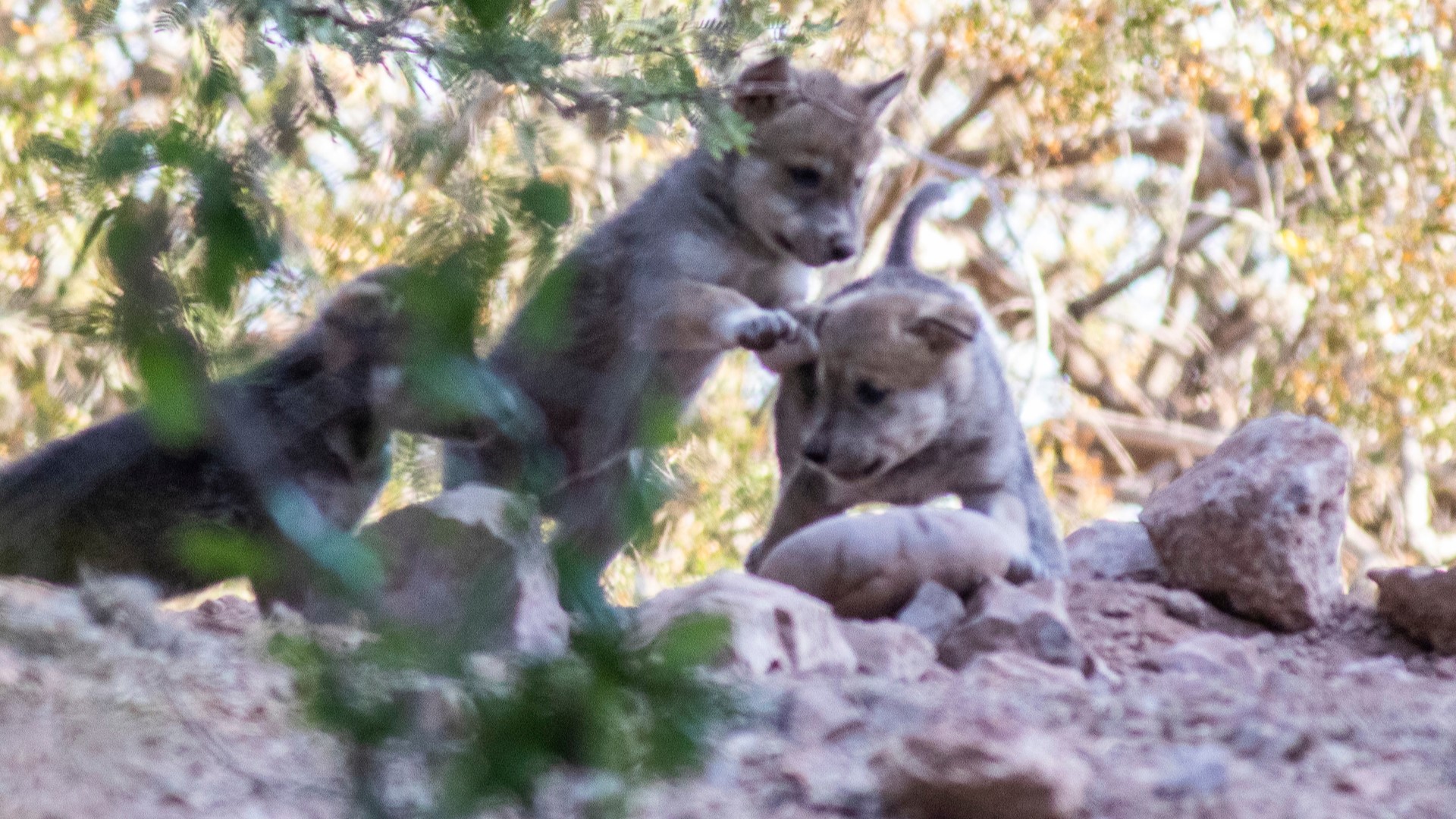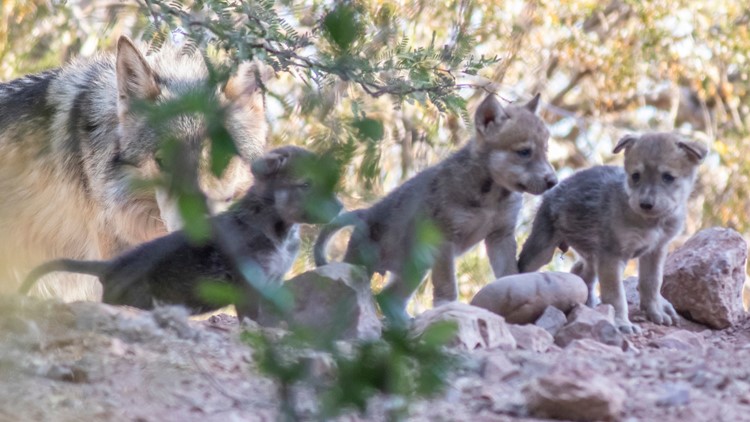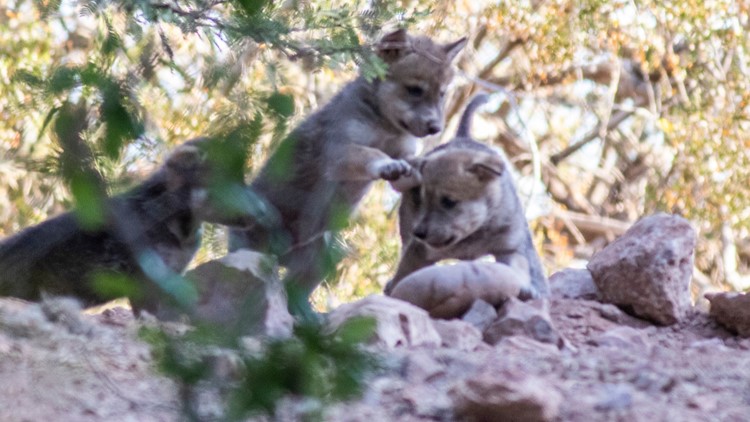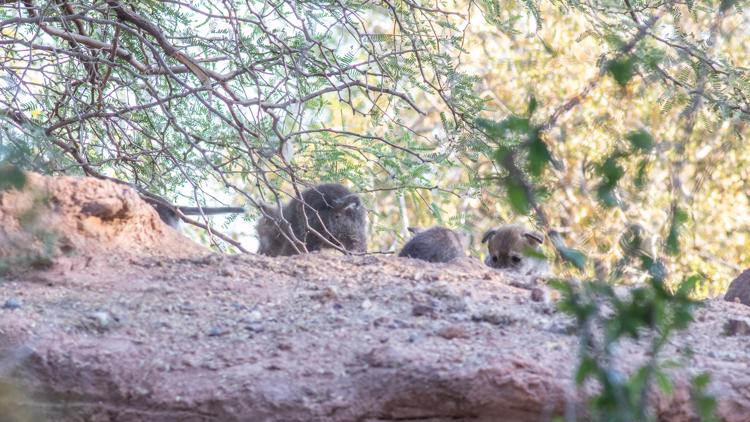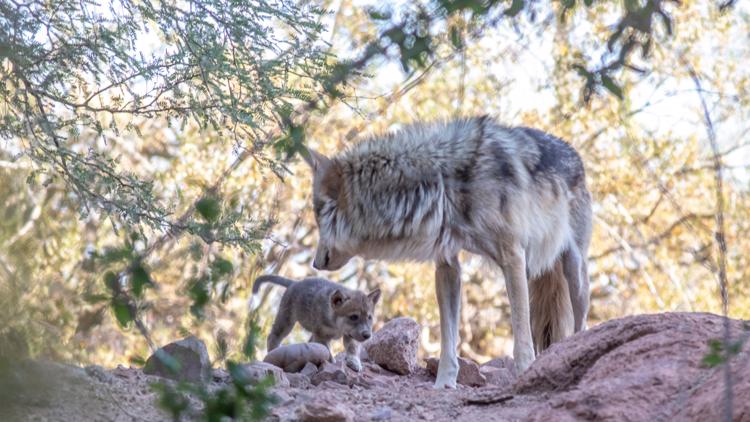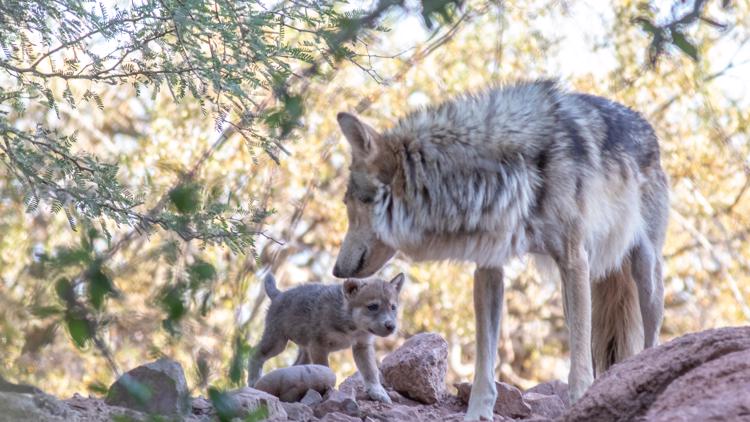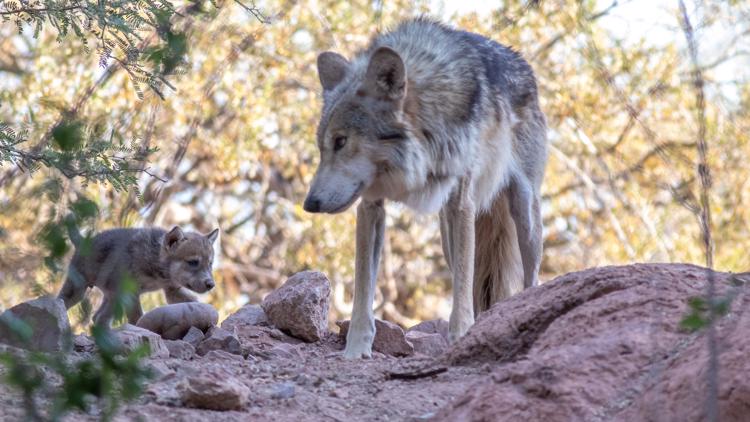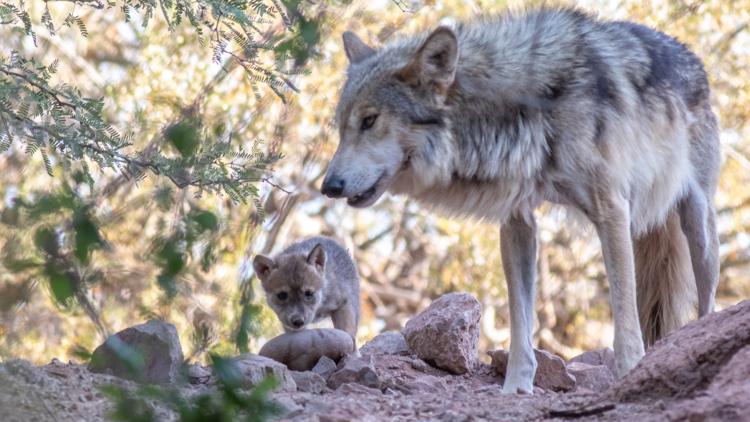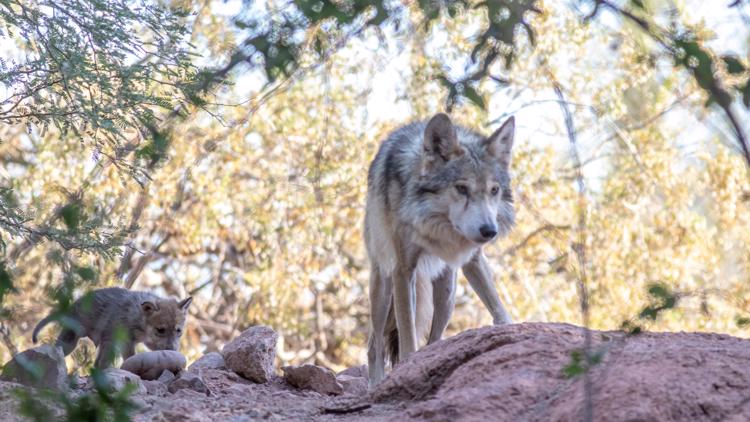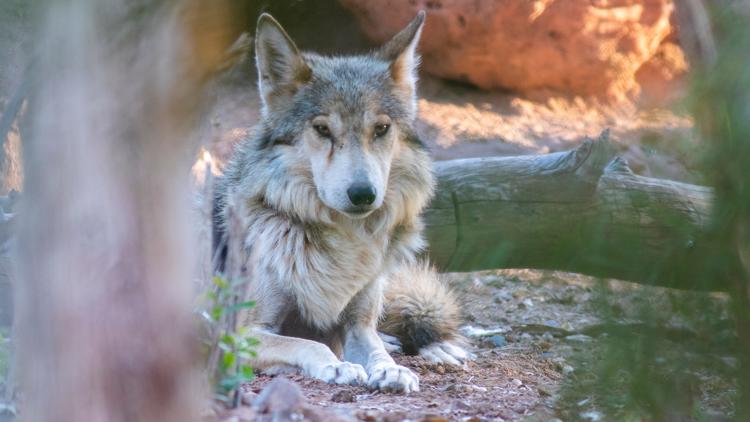The Phoenix Zoo is celebrating the first successful Mexican gray wolf birth at the zoo in 20 years.
The zoo said its female wolf Tazanna gave birth to six pups back in early May. Tazanna along with the pups’ dad, Tulio, are raising the little ones without interference from zoo staff.
According to the zoo, the family will not be disturbed until the pups require a neonate exam by zoo veterinarians “at an appropriate age.”
"The parents are doing a great job caring for their pups,” Angela Comedy, Phoenix Zoo Carnivore Collection Manager said in a release. “It is a delicate process and they have certainly risen to the occasion.”
The zoo said this birth is part of a program between several agencies to “restore Mexican gray wolves to their native southwest territory,” which includes Arizona.
The 3-year-old wolf parents were “instantly compatible” when they arrived at the Phoenix Zoo on the same day in November 2017, the zoo said.
The pups and mom spend most of their time in their den, but may be spotted more regularly as they grow older, according to the zoo.
PHOTOS: Phoenix Zoo welcomes 6 Mexican gray wolf pups
In a release from the zoo, Phoenix Zoo President and CEO Bert Castro said the zoo was “proud” to invest in the conservation effort to save the Mexican gray wolf.
“Fortifying the Mexican gray wolf population has been a reachable goal for some time now,” Castro said. “It’s a rarity to spot one of these elusive “lobos” in the wild. Their population is endangered while conservationists have fathomed a possible, looming extinction.”
According to the zoo, only 131 wild Mexican gray wolves were reported in 2018, for a species that once spanned from Central Mexico to southeastern Arizona, southern New Mexico and western Texas. The number was a 12 percent increase in population from the previous year. The wolf’s range is now restricted to small areas in New Mexico and Arizona, the zoo said.
“Targeted because of intense predator control by the federal government, the howl of the Mexican gray wolf is now silenced throughout most of the wild ranges where they once thrived,” the zoo wrote in a release.
The zoo said the goal of the breeding program is to “make the most genetically diverse matches to support the continued health of Mexican wolf populations in human care and the wild.”
“Zoo populations like the wolves at the Phoenix Zoo help support the ongoing genetic health of wild wolves,” the release from the zoo read.

